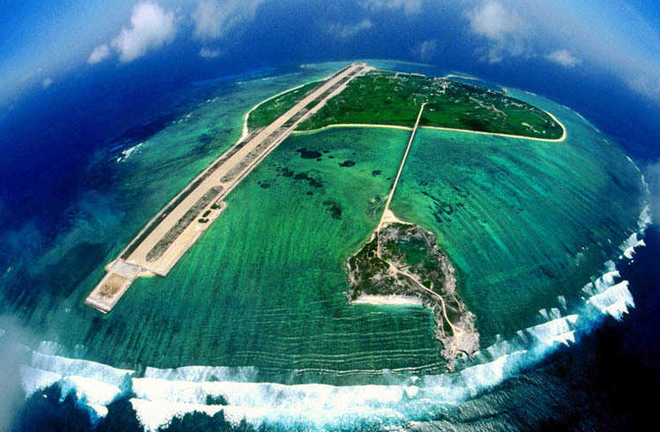Scholars question South China Sea ruling

On the afternoon of July 12, Kuen-Chen Fu, director of the South China Sea Institute at Xiamen University in Southeast China’s Fujian Province, was attending a high-level international conference for “functional cooperation” between ASEAN countries in the South China Sea in Vientiane, capital of Laos. A couple of minutes prior to his speech, he read the outcome of the so-called South China Sea arbitration. He said he was “shocked” to see how untenable it was before even finishing reading the news.
“For example, according to the decision, the islands and reefs of the entire Nansha archipelago are not entitled to 200 nautical miles of exclusive economic zones. This is a bold, arbitrary claim that was made without any detailed scientific investigations,” Fu said.
“For another instance, the assertions that China’s historical rights and waters in the South China Sea have no legal basis and the dotted line is against the United Nations Convention on the Law of the Sea (UNCLOS) have ignored facts and are obvious mistakes,” he added.
A form of “Track II diplomacy” that takes place outside of official government communication channels, the conference gathered scholars and former government officials from the 10 ASEAN countries and China. As soon as he was informed of the arbitration decision, Fu decided to take two minutes to make a brief comment on it.
He reaffirmed that the historical rights claimed by China are not only on solid legal ground but also conform to the principle of UNCLOS. His remarks were applauded by all attendees except for those from the Philippines and Vietnam.
Li Guoqiang, deputy director of the Institute of Chinese Borderland Studies at the Chinese Academy of Social Sciences, pointed out that history and jurisprudence are the only two bases to judge the sovereignty of a territory, and both are indispensable. China’s sovereignty over the South China Sea islands and its rights on the waters have ample historical and jurisprudential evidence, Li said.
Going against objective realities and international laws, the temporary arbitration tribunal has acted beyond its authority, abused power and extended rights without authorization, Li said.
First, the arbitration court has no right to intervene in and handle the sovereignty and demarcation issues of South China Sea islands. It has violated the boundaries of its judicial jurisdiction, so it has exceeded its authority, Li said.
Moreover, the UNCLOS requires parties to respect the agreed upon way to handle disputes. China has adopted and stuck to diplomatic negotiation and peaceful settlement, but the tribunal turned a blind eye to China’s approach, so it has abused its power.
In addition, China has made a declaration that it does not accept any unilateral judicial arbitration on disputes concerning sea boundary delimitations, maritime military activities, law enforcement practices and marine scientific research, which is protected by Article 298 of UNCLOS. The tribunal disregarded the rights endowed by international law to contracting states, and therefore has arbitrarily extended its power, Li said.
“Now that the farce is over,” said Chinese Foreign Minister Wang Yi, “it is time for things to go back to normal.”
Normalizing relations requires cooperation, Li said, adding that advancing the establishment of relevant concrete mechanisms for peace and stability in the South China Sea is one of the ways that China and related ASEAN countries seek cooperation in the waters. Currently, China and ASEAN have built a free-trade zone, laying a sound foundation for cooperation, Li said.
Since 2013, when China proposed establishing the 21st Century Maritime Silk Road, many ASEAN countries, including nations surrounding the South China Sea, have expressed their desire to achieve common prosperity, stability and harmony through a new “maritime Silk Road,” Li said
“The South China Sea issue should get back on track toward diplomatic negotiation, maintaining peace and stability in the area, and cooperation and development.”
